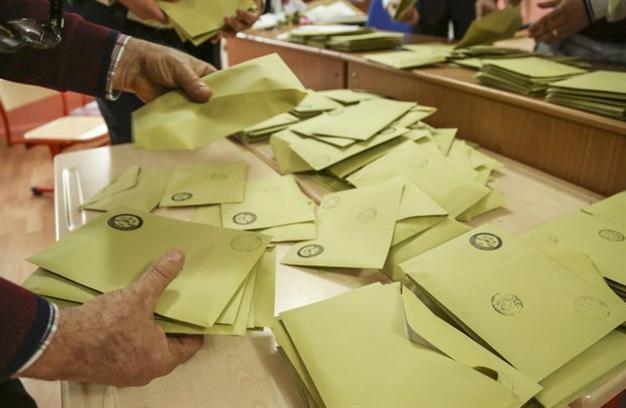EU says Turkish vote reaffirms people's 'strong' democratic commitment
BRUSSELS

AA photo
The European Union and Council of Europe have both underlined the high voter turnout during the Nov. 1 snap elections in statements issued a day after the polls, while expressing a desire to advance cooperation with Turkey on a number of issues.EU High Representative and Vice-President Federica Mogherini and the EU Enlargement Commissioner Johannes Hahn said in a joint written statement that the Nov. 1 snap elections in Turkey, which saw a turnout as high as 85 percent, “have reaffirmed the strong commitment of the Turkish people to democratic processes.”
The Justice and Development Party (AKP) received almost 50 percent of the votes to secure a single-party government after a five-month break, which had started with the June 7 elections, when the AKP had received 40.87 percent of the votes, which was not enough for sole rule.
As coalition efforts proved to be fruitless, Turkey, for the first time in its history, decided to go to snap elections, which were scheduled for Nov. 1.
“The EU will work together with the future government in order to further enhance the EU-Turkey partnership and to continue to advance our cooperation across all areas for the benefit of all citizens,” the EU’s joint statement read.
On the same day, Council of Europe Secretary General Thorbjørn Jagland said he had written to congratulate Prime Minister Ahmet Davutoğlu on his party’s result during the election, which had seen “a strong voter turnout.”
“I trust when the new government is formed it will take the initiative to tackle the many challenges facing Turkey today and to build an inclusive society embracing all those who did not vote with the majority,” read Jagland’s statement, issued on Nov. 2.
Jagland also said that as the Council of Europe, they were looking forward to continuing the dialogue and cooperation with Turkey in areas such as Turkey’s role in accommodating over 2 million Syrian refugees who fled their country due to domestic violence for the past five years, reform of the judiciary and freedom of expression.
The main opposition Republican People’s Party (CHP) encountered a considerable disappointment in the Nov.1 polls, as it only managed to slightly improve on its June 7 performance, getting around 25.8 percent.
Both the Nationalist Movement Party (MHP) and the Kurdish problem-focused Peoples’ Democratic Party (HDP) lost a considerable number of votes. The HDP, which got 13.2 percent of the votes in June, again managed to cross the 10 percent election threshold to get representation in parliament, but only by a narrow margin. The MHP’s loss was even sharper, dropping to around 12 percent from 16 percent in June, apparently losing a sizable chunk of support to the AKP.
















